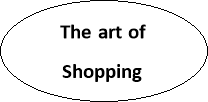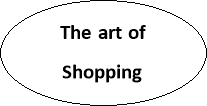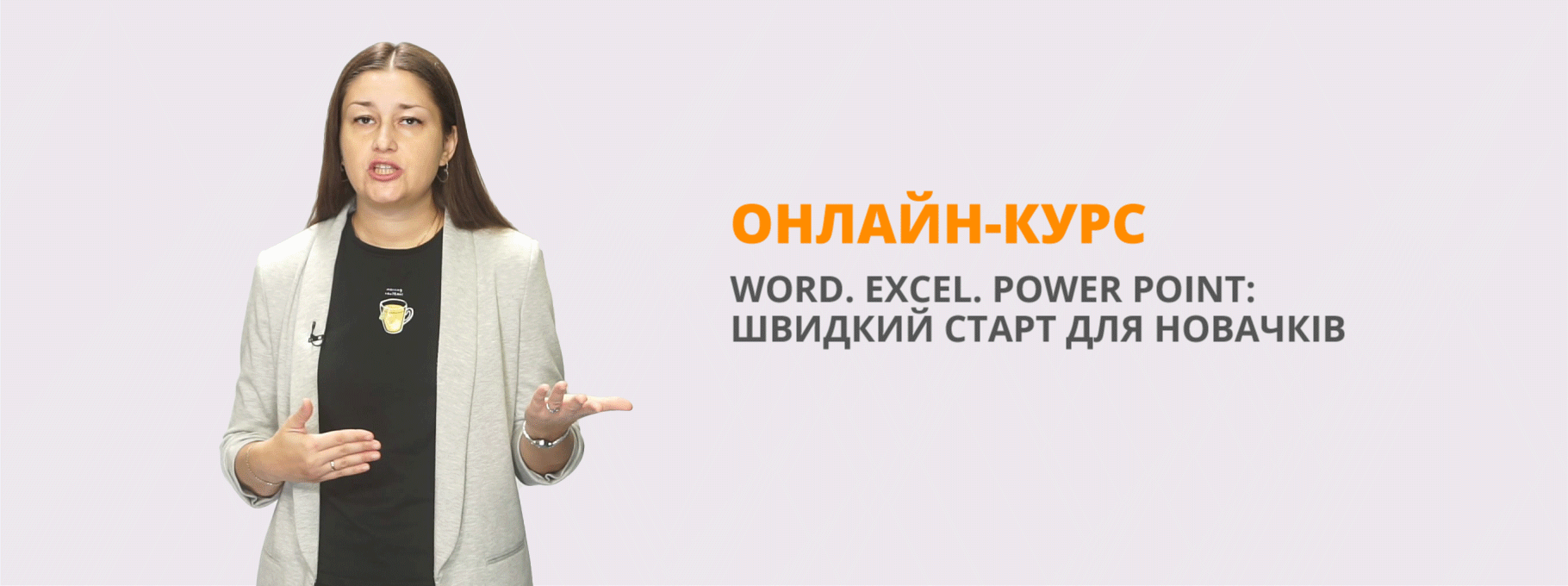Тематичні контрольні роботи
Тематичні контрольні роботи по темам “Travelling", “A City", “The Art of Shopping", “Food in Our Life", “Man and His Health", “Sport" складаються з лексичних, граматичних та письмового завдання
Тематичні контрольні роботи
(підручник О.Карп’юк “Англійська мова”)
 Unit 1
Unit 1
Variant 1
- Choose and insert the correct word. Remember the difference between say, tell.
- He … good-bye and left the room.
- My mother … me that she would come in two hours.
- The Customs officer … the passengers to sign a declaration.
- To … the truth l don’t like to read.
- Answer the questions.
- Why do people travel?
- Do you believe that travelling is dangerous ? Why?
- Do you like to travel?
- Is travelling your hobby?
- Turn the following sentences into reported speech.
1. The student said: ”We study English.”
2. The boy said “I learned French at school last year.”
3. The man said “l am an engineer.”
4. She said “We`ll be at home at 6 o`clock.”
5. Ann said “l was with my friends in the park yesterday. ”
6. The girl said “I have done my work.”
7. My mother said: “l don’t speak English.”
8. The doctor said: “I’ll come again in the morning.”
9. The woman said: “ I didn’t see him yesterday.”
- Use the correct form of the verbs in the brackets.
(Conditional sentences )
1.If I worked hard, I … (to be) soon a great magician.
2.If I were really famous, I … (to go) all over the world.
3.If I find your key, I … (to give) it to you.
4.If I went all over the world, I … (to take) a lot of money.
5.If there is a good film on TV on Sunday, I … (to stay) at home with you.
- Explain the meaning of the proverb “There is no place like home.”
 Unit 1
Unit 1
Variant 2
- Choose and insert the correct word. Remember the difference between bring, take.
- My friend will … his friend to the party next Sunday.
- “Will you … me to the station, Tom?” “Yes, get in”
- His parents … him to the Fair on Sunday. He’ll enjoy seeing small and large animals there.
- Our friends have … several interesting things back from their trip to America.
- Answer the questions.
- Have you ever travelled by air?
- Is it expensive to travel?
- What is the fastest way of traveling?
- Why do people travel?
III. Turn the following sentences into reported speech.
1.The child said: “ I had dinner at school yesterday.”
2.The woman said : “ I have three sons.”
3.The girl said : “ I am not hungry at all.”
4.The teacher said : “ They do not know the rule.”
5.My friend said : “ I didn’t recognize him.”
6.The girl said : “ I am doing my homework now.”
7.The girl said : “ I was there in 1991. ”
8.He said : “ I met him at 5 o’clock yesterday.”
9.The man said : “ My name is Nick.”
IV. Use the correct form of the verbs in the brackets.
(Conditional sentences)
1.I`ll see John if I ___ to Oxford (go)
2.If you ____her a tablet you would be wrong (give)
3.We shouldn’t have the picnic if it ___(rain).
4.John would have learned grammar if he____hard (work)
5.Will you give him money if he ____for it (ask)
V. Explain the meaning of the proverb:” East of West home is best”.
 Unit 2
Unit 2
Variant 1
- Write the following sentences inserting prepositions wherever necessary.
- … Sunday I usually get up … nine o’clock or … half past nine.
- My birthday is … the ninth of July.
- Our lessons are usually over … twenty minutes to two.
- The school year begins … the first of September.
- Answer the questions.
- Do you have a favourite city?
- What are the most remarkable places of interest in your city?
- How long does it take you to get to the center of the city?
- Have you ever been lost in a big city?
- Change the following sentences into the Passive Voice:
1.They are building a new concert hall in our street.
2.By six o`clock they had finished the work.
3.We shall bring the books tomorrow.
4.They are repairing the clock now.
5.I have translated the whole text.
- Open the brackets and use the correct forms of the verbs.
1. If the doctors hadn’t helped him, he ( die).
2. People ( become) healthier if they took cold baths regularly.
3. If they ( play ) better, they would have won the match.
4. If I knew the answer, I ( tell ) you.
5. If it ( rain), we’ll not go to the theatre.
- If you had an opportunity to create a city, what would you make it look like?
 Unit 2
Unit 2
Variant 2
- Write the following sentences inserting prepositions wherever necessary.
- … the twenty – fifth of December people celebrate Christmas.
- … Wednesday I usually have a lot of homework.
- They returned from the wood … sunset.
- I began writing my composition … seven o’clock and finished only … midnight.
- Answer the questions.
- Is it a city you have only visited once but you would like to go back again?
- Why is it important to preserve buildings of great historical interest?
- How long does it take you to get to Drama theatre?
- Do you live far from school?
- Change the following sentences into the Passive Voice:
1. They will stage this play at the beginning of next season.
2..People in Europe buy wood from South America.
3.Local people use wood to build their homes.
4.People make chairs out of mahogany.
5.Pollution kills thousands of fish every year.
- Open the brackets and use the correct forms of the verbs.
- If the hunter had missed then the tiger ( tear ) him to pieces.
- If you ( be )more attentive at the lessons, you wouldn’t make so many mistakes in your dictation.
- If you had got up earlier, we ( not miss ) the rain.
- They ( not do ) it if they had known how dangerous it was.
- If I ( be ) you, I wouldn’t marry that awful girl.
- Imagine that it is the year 3000.
The mayor has asked you to design a perfect city. Describe it.
Unit 3

Variant 1
- Write down at what shops you can buy the following:
- sugar and tea
- bread
- fruit and vegetables
- a TV set
- Answer the questions .
- When do you usually go shopping?
- Where do you go shopping?
- What have you bought today in the way of food?
- Are the shops crowded when you do your shopping?
- What will you say if you want to know:
- the price of the cake you are buying;
- If the bread is fresh;
- how much you must pay for the things you’ve bought
- where you can buy some sweets
- Read a situation and write a sentence with “the modal verbs+ Perfect Infinitive”. Use the words in brackets.
- Dennis did the opposite of what I asked him to do. ( he can’t/ understand/what I said)
- When I woke up this morning, the light was on. ( I must/ forget/to turn it off)
- Dan passed the examination. He didn’t study very much for it. ( the exam can’t /be/very/difficult)
- I don’t understand how the accident happened. ( the driver can’t/see/the red light)
- I can’t find George anywhere. I wonder where he is. ( he might/go/shopping)
- There are advertisements literally everywhere you look in the city. If you want to sell something, will the city be a good place to advertise it? Why or why not?
Unit 3

Variant 2
- Write down what the following shops and tradesmen sell.
- the butcher
- the grocer
- the dairy
- the baker
- Answer the questions .
- What do you usually buy in the market?
- What is the biggest Department Store in your native town?
- What kind of clothes do you prefer : ready –made or made- to-order?
- What time is your nearest shop open ( closed)?
- What do you do or say if:
- You want to buy some meat or fish;
- You see you haven’t got any more semolina
- You can`t buy the thing because it`s too expensive
- You want to know the price of a certain thing
- Read a situation and write a sentence with “the modal verbs+ Perfect Infinitive”. Use the words in brackets.
- The phone rang but I didn’t hear it.( I must/ be/ asleep )
- That dress you bought is a very good quality. ( it must/be/ very expensive)
- I wonder where my umbrella is. ( you must/leave/it on the train)
- I haven’t seen Jim for ages. ( he/must go/away)
- She knew everything about our plans. ( she must/ listen/to our conversation)
- Make a story how you were once pressed into buying something you didn’t like.
Unit 4

Variant 1
- What table manners should you follow? Complete the following sentences.
- Help yourself to …
- Will you pass …
- Can l offer you …
- Let`s have ….
- Answer the questions:
- What are your meal-times? What order of meals do you follow?
- What is English “afternoon tea?”
- Why do people enjoy eating out?
- What food do the Ukrainian people like?
- Write sentences with “the modal verbs + Perfect Infinitive”. Use the words in brackets.
1. Sally wrote to the bank. ( might)
2. The robbers had a key to the office. ( may)
3. Mike didn’t receive my letter. ( may )
4. They went out. ( might)
- What do you say if:
- you like a dish very much
- you want to invite somebody to dinner
- you want to see the menu
- you want to have a steak (fruit, fish)
- Eating at restaurants is a waste of time and money. Prove your point of view.
\
 Unit 4
Unit 4
Variant 2
- What table manners should you follow? Complete the following sentences:
- For dessert I’ll have …
- They serve …
- Can I offer you?
- May I trouble?
- Answer the questions:
- What do you usually order for the main course?
- Are national dishes served in restaurants?
- What can you say about Ukrainian hospitality?
- Do the national Ukrainian dishes differ from the English ones?
- Write sentences with “the model verbs +Perfect Infinitive”. Use the words in brackets:
1. She forgot about the meeting. ( may)
2. The were asleep. ( might)
3. They left early. (could)
4. She didn’t catch the bus. ( may)
- What do you say if:
- You have enjoyed dinner
- Somebody invites you to dinner
- You give somebody the menu
- You want to drink a toast to somebody.
- Fast food restaurants have become very popular. But not everyone thinks they are a good idea. Prove your point of view.
Unit 5

Variant 1
- Agree or disagree to the following statements. Explain why( 1-3 sentences).
- If you got sick, don’t consult the doctor
- If you want to keep in good health don’t keep negative feelings. Try to develop a positive attitude.
- Give one word for the following:
- A person who makes patients’ appointments with a doctor;
- A piece of paper which specifies the medicine for curing your illness;
- A paid number of days given to you by your employer when you are ill;
- A sick person who is treated by a local physician.
- Answer the followings questions:
- What do you usually do when you fall ill?
- What does the doctor do when he comes to examine you?
- Why must one follow the doctor’s instructions?
- What should we do so as not to have complications after a cold?
- Complete these sentences using “had to” or “ought to have”
- James … ( work ) harder, then he would have passed the exams.
- Graham didn’t play squash because he … ( help ) his wife.
- Bill … ( visit ) his mother-in-law on Sunday so he missed the match.
- You … ( take )a taxi, then you wouldn’t have missed the train.
- Explain the meaning of the proverb : “What can`t be cured must be endured ”.
 Unit 5
Unit 5
Variant 2
- Agree or disagree to the following statements. Explain why(1 -3 sentences).
- To be healthy means to keep oneself clean , to take long walks and to be on a diet.
- Healthy food means ice cream, cakes, bread and sweets.
- Give one word for the following :
- A place where the patients come for the checkup;
- A sort of medicine which can cure you of cold;
- A pain in your head which you have felt for a long time;
- To make a sick person healthy again.
- Answer the following questions:
- When were you ill last? What did you feel?
- What must we do to keep in good health?
- Where would you prefer to be treated if you fell ill – at home or in hospital?
- What do you do to cure a cold?
- Complete these sentences using “had to ” or “ought to have”.
1. He opened all the windows but he … ( know ) better.
2. I left the office early because I … ( meet ) Mary at 5 o’clock.
3. They … ( sell ) their car last month in order to pay their debts.
4. We … ( buy ) a house last year when the prices were lower.
- Explain the meaning of the proverb “Good health is above wealth ”.
 Unit 6
Unit 6
Variant 1
- Which sports do you think are:
- very dangerous to play;
- very exciting to watch;
- very fast to play;
- very interesting to watch?
- Answer the following questions:
- Do you play any games?
- What is your favourite game?
- What competitive sports do you know ?
- What do you know about major professional sports in Great Britain?
- Give the words corresponding to the following definitions.
- the place people skate on.
- frozen water
- the person who dances on the ice.
- the sports ground on which tennis is played.
- Open the brackets using the correct form of the Conditional Mood.
- It is doubtful that Jerry Chambers ( to give) the sovereign to the beggars.
- If someone ( to respond ) to the call for W. Ballantyne, would George (to be able) to get his prize of a sovereign in the name of W. Ballantyne?
- It is likely that the Committee ( to award ) the third prize to W. Ballantyne by mistake.
- But for the good idea that came to his mind, George
( not to exchange ) hats with his friend.
5.Would George ( to speak ) to Nab with a mysterious air if some other idea ( to occur ) to him?
- Do you agree with this opinion: “Sports keeps me fit and healthy”?
 Unit 6
Unit 6
Variant 2
- Which sports do you think are:
- very interesting to watch;
- very boring to watch;
- very slow to play;
- very good for people who want to stay fit?
- Answer the following questions:
- What are spectator sports?
- What sports are popular in our country?
- What is the most characteristic feature of Ukrainian sports programmes?
- Do young boys dream of becoming ice – hockey players? Why?
- Give the words corresponding to the following definitions:
- the person who acts as judge in football
- the place people skate on
- the person who plays chess.
- the person who dances on the ice.
- Open the brackets using the correct form of the Conditional Mood.
- If A. Copparnd’s language ( not to be ) so difficult, we ( not to have had to) adapt his story.
- Would the spectators ( to beam ) with pride and triumph unless they ( to be enthusiastic)?
- If George ( not to be satisfied ) with himself, he(may not explain) to Nab so long what he had undertaken.
- If the two friends ( not to move ) down a hill at the time, they ( may not meet ) Jerry Chambers.
5. If Jerry ( not to stand ) in front of the beggars, the two lads (may take) no notice of him.
V. Do you agree with this opinion “My life would be boring without sport.”


про публікацію авторської розробки
Додати розробку
